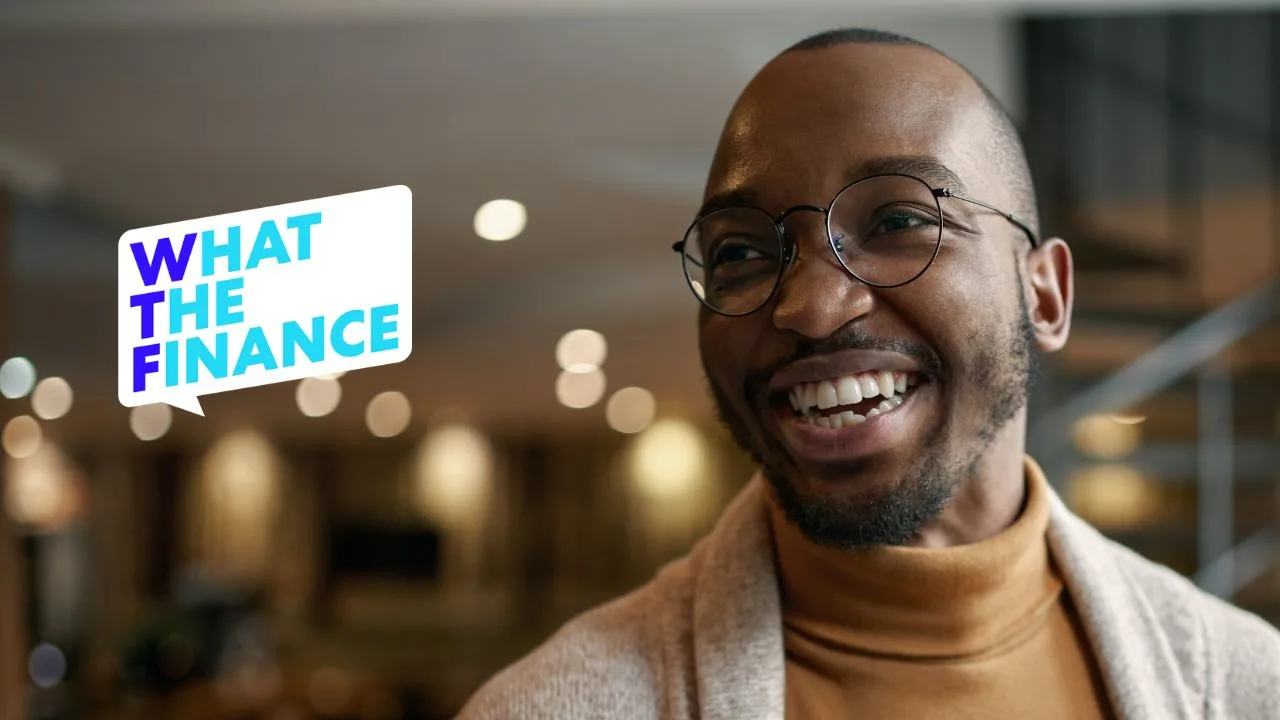At Achieve, we're committed to providing you with the most accurate, relevant and helpful financial information. While some of our content may include references to products or services we offer, our editorial integrity ensures that our experts’ opinions aren’t influenced by compensation.
Everyday Finances
4 tips to approach the “debt talk” while dating
Feb 12, 2024
Written by
Reviewed by
You’ve swiped right and met up a couple of times. You’re still trying to show the best, most attractive parts of yourself. But you know—if things start looking serious—you’re going to have to start talking about debt.
It can be difficult to know when to bring up debt in a relationship. It’s hard to talk about. Our society tends to shame those with debt, and it’s common to avoid the topic.
Here’s when and how to talk about debt and your relationship.

When do you talk about debt in a relationship?
For the most part, there’s no need to disclose your debt on the first few dates. But there are money conversations every couple should have. Plan to start putting this topic on the radar once things start looking serious. When my ex-husband and I began discussing our shared goals and what a future together might look like, the conversation included debt.
In general, you want to start talking about money and debt when you reach certain milestones:
You decide to date each other exclusively
You begin sharing expenses
You talk about moving in together
Disclosing your feelings about debt (and your level of debt if you have any) should be part of a wider discussion about future planning and shared goals.
It’s important to address debt before you move in together or get married—or before you get too far into your relationship. A partner could feel duped or betrayed if you suddenly bring up your debt after you’ve progressed to high levels of seriousness and commitment.

How to start talking debt
Talking about debt can feel awkward. You don’t have to blurt out your balances in between frames at the bowling alley on Friday night. When you begin talking about sharing expenses or moving in together, or if you think that you might eventually get married, set a time to sit down and talk about finances—including debt. My ex-husband and I shared our debts as part of our planning conversations when we began strategizing our life together.
Plan the conversation ahead of time. This should be a scheduled conversation, with the understanding that you'll both be honest about your current financial situation. Planning ahead means you can both double-check your situation and be ready with an accurate representation. If you’re not already on top of your financial situation, this is a great opportunity to start. It’s pretty hard to reach financial goals if you don’t know how much comes in or goes out of your account each month.
Be in a good headspace. Consider having this conversation after you’ve shared a good meal together. Try to plan a time when you’re both rested. Many people block out time on the weekend to have these conversations—after they’ve had at least a night to decompress from the workweek.
Don’t try to solve problems or disagreements in your first money chat. Your first money date is about where you both are right now. It’s a snapshot. Your next money date can be more about how you might manage your money together overall.

What to talk about
Once you have your money date planned out, get ready to share your financial situation. Sharing details that may be embarrassing, like too much credit card debt, could help the two of you grow closer. If this is someone you trust and want to build a life with, put it out there. Don’t keep money secrets.
Here are the items that my ex-husband and I talked about during our first money date:
Sources of income, and how much income we each had
How much we each had in our bank accounts (savings and checking)
Any investments we had
Types and amounts of debt (credit card accounts, student loans, car loans, personal loans, etc.)
Monthly debt payments and interest rates
Our plan to pay off the debt
We kept the talk strictly factual, with no moral judgments about how or why the debt was accumulated in the first place. Instead, we focused on where we each were at that time so we had a clear picture. It was about sharing the information and painting the full picture, so we could make better choices together as a couple.

Next steps
If you’re committed to building a life together, you can start taking other steps to map out your financial future. One great option is to talk to a financial professional about how to make the most of your situation as a couple.
Talk to a debt expert to learn your options for getting rid of debt, especially if you feel overwhelmed. Debt relief can help you settle your debts for less than you owe.
If you have money to invest, working with a financial planner could help you build a nest egg. If you happen to have a retirement account, you might already have access to free or low-cost financial planning advice.
Credit counseling could provide the education you need to build and maintain a healthy credit standing.
The point is to do these things together. It’s not impossible to maintain separate financial lives as a couple, but you’d be missing out on an opportunity to support one another in a very intimate and personal way.
Author Information
Written by
Miranda Marquit is an award-winning financial writer and podcaster. Her work appears in numerous media outlets. She often hosts workshops and appears on panels on topics related to financial wellness. She is the co-host of the Money Talks News podcast and a consumer finance advocate.
Reviewed by
Kimberly is Achieve’s senior editor. She is a financial counselor accredited by the Association for Financial Counseling & Planning Education®, and a mortgage expert for The Motley Fool. She owns and manages a 350-writer content agency.
Related Articles
These subtle (and not so subtle) red flags could be signs that you’re falling into a debt trap. Read more.
Compound interest is a two-sided coin. Good for your savings, bad for your debts. Find out more here.
Your debt-to-income ratio tells lenders how much money you can borrow. Find out how it works.



